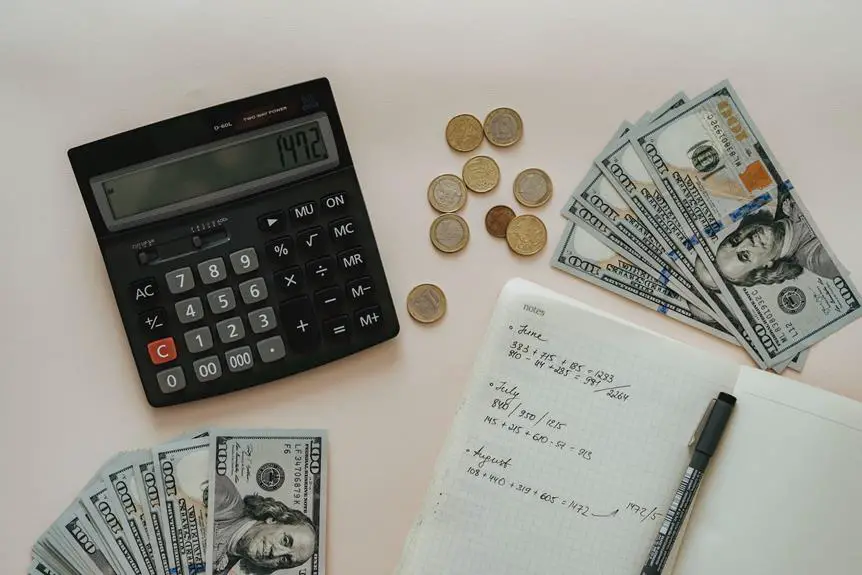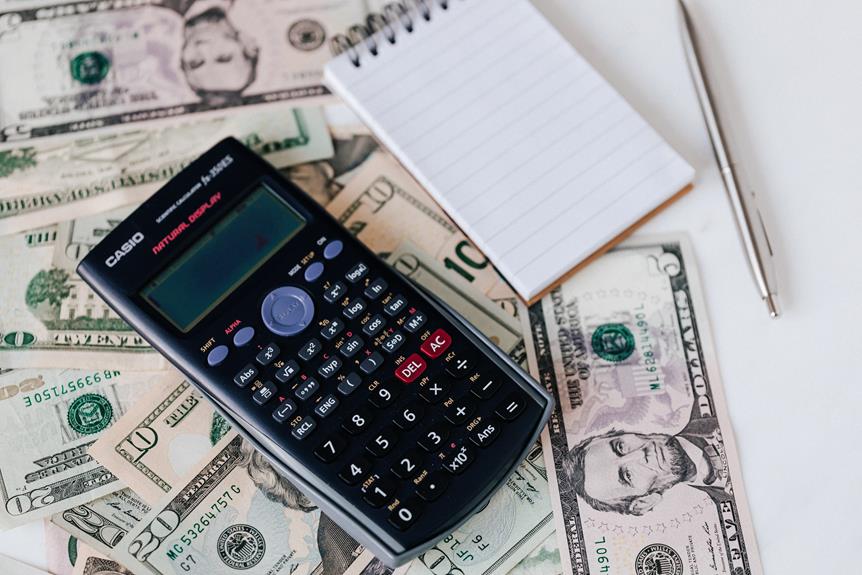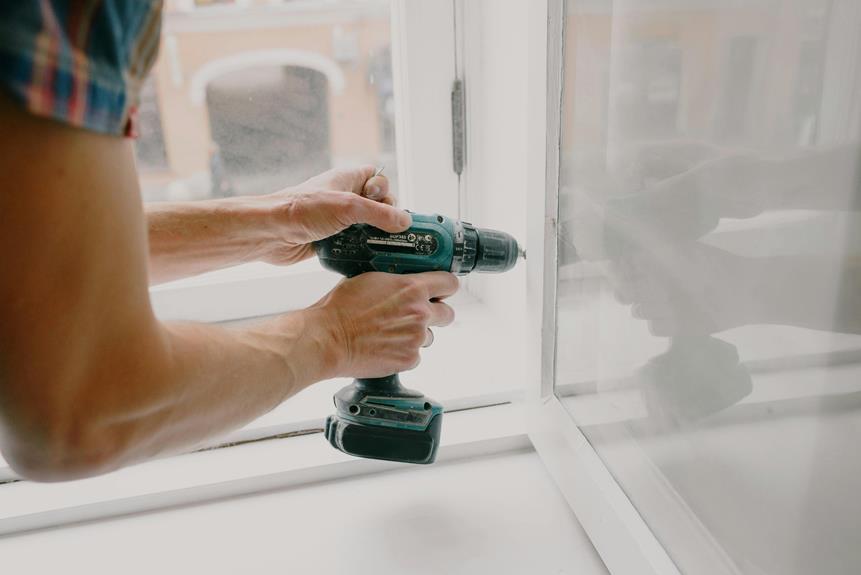Engaging in a hobby or recreational activity can bring immense joy and fulfillment to our lives, but it’s important to approach these pursuits with a thoughtful budgeting strategy. From travel and outdoor adventures to crafting and sports, every hobby requires some level of financial investment.
By creating a budget tailored to our interests, we can ensure that we have the resources to fully immerse ourselves in our chosen activities while avoiding unnecessary financial strain.
In this era of consumerism, learning to budget for our hobbies can also foster a sense of mindfulness and intentionality in our leisure pursuits.

Assessing Your Current Financial Situation
Assess your current financial situation to accurately determine your budget for pursuing a hobby or recreational activity. Understanding where you stand financially is crucial in ensuring that you can afford to engage in activities that bring you joy and fulfillment.
Start by assessing your income, including your salary, bonuses, or any additional sources of revenue. Take into account your monthly expenses as well, such as bills, rent or mortgage payments, groceries, transportation, and any other regular costs.
Analyzing your expenses will give you a clear picture of how much disposable income you have available to allocate toward your hobby or recreational activity.
Next, consider your financial goals. Do you have any long-term objectives you’re saving for, such as buying a new car or saving for retirement? It’s important to factor in these goals when determining your budget for your hobby. Think about how much you can comfortably set aside for savings each month while still enjoying your chosen activity.
Once you have assessed your income, analyzed your expenses, and considered your financial goals, it’s time to devise savings strategies and make necessary budget adjustments. Look for areas where you can cut back on spending to free up more funds for your hobby.
This could mean reducing dining-out expenses, finding cheaper alternatives for entertainment, or renegotiating bills and subscriptions.
Identifying Your Hobby Expenses
To properly budget for your hobby or recreational activity, you need to identify and calculate the expenses associated with it.
Start by identifying necessary expenses, such as the cost of equipment or supplies required for your hobby. Whether it’s a camera for photography or a set of golf clubs, these items are essential for pursuing your hobby.
Next, consider tracking discretionary spending related to your hobby. This includes things like books, magazines, or accessories that enhance your experience but aren’t necessary. It’s important to set a budget for these discretionary expenses to avoid overspending.
If your hobby involves taking lessons or classes, estimating the cost of these lessons is crucial. Find out the average cost per session or month and factor it into your budget.
Lastly, don’t forget to manage ongoing costs associated with your hobby. This may include membership fees, maintenance costs, or travel expenses.
Setting Realistic Budget Goals
To create a budget that aligns with your financial goals, start by setting realistic budget goals for your hobby or recreational activity. Setting realistic budget goals is crucial to ensure that you can enjoy your hobby without breaking the bank.
Begin by tracking your expenses related to your hobby. This will help you understand how much you currently spend and where you can potentially cut back. Once you have a clear picture of your expenses, evaluate your budget and identify areas where you can make adjustments.
When setting your budget goals, it’s important to be realistic about what you can afford. Consider your income and other financial obligations before allocating a specific amount to your hobby expenses.
It may be helpful to prioritize your spending by determining which aspects of your hobby are most important to you. This way, you can allocate more funds to those areas and make necessary cuts in other areas.
Additionally, don’t forget to take advantage of discounts and deals when purchasing supplies or participating in activities related to your hobby. Look for sales, coupons, or membership discounts to save money. Being mindful of your budget and utilizing discounts will help you stay within your financial limits while still enjoying your hobby to the fullest.
Prioritizing Your Hobby Expenses
When prioritizing your hobby expenses, consider which aspects bring you the most joy and allocate your budget accordingly. By prioritizing your hobbies, you can make the most out of your limited funds and ensure that you’re spending your money on the things that truly matter to you.
Here are some budgeting tips to help you prioritize your hobby spending and incorporate it into your financial planning:
- Identify your top priorities: Take some time to reflect on your hobbies and figure out which ones bring you the most happiness and satisfaction. This will help you determine where you should allocate the majority of your hobby budget.
- Assess the costs: Consider the expenses associated with each of your hobbies. Some hobbies may require more financial investment, while others may be more affordable. Take this into account when prioritizing your spending.
- Explore saving strategies: Look for ways to reduce costs without compromising your enjoyment. This could involve finding discounts, buying used equipment, or participating in group activities that offer shared expenses.
Exploring Cost-Effective Alternatives
Consider exploring cost-effective alternatives to make the most out of your hobby budget and ensure that you are getting the most value for your money.
By finding affordable alternatives and budget-friendly options, you can maximize your savings while still enjoying your favorite recreational activities. Here are some cost-saving tips and frugal hobby ideas to help you pursue your passions without breaking the bank:
| Cost-Saving Tips | Affordable Alternatives |
|---|---|
| Look for deals and discounts | Buy second-hand equipment or materials |
| Join a community or club | Borrow or rent equipment |
| DIY projects | Use free online resources or tutorials |
| Swap or trade with other hobbyists | Participate in hobby meetups or swap meets |
| Take advantage of seasonal sales | Opt for budget-friendly brands or generic alternatives |
| Use coupons or promo codes | Explore free or low-cost hobby options |
Researching and Comparing Prices
To make the most out of your hobby budget, it’s essential to research and compare prices before making any purchases. By comparing prices, you can ensure that you’re getting the best deal and making the most of your hard-earned money.
Here are some tips to help you research and compare prices effectively:
- Researching options: Take the time to explore different stores, brands, and sellers to find the best prices for the items or services you need. Look for online reviews and recommendations from other hobbyists to get an idea of the quality and value of different options.
- Price comparison websites: Utilize price comparison websites that allow you to compare prices from multiple retailers at once. These websites can save you time and effort by providing you with a comprehensive list of prices for the specific item you’re looking for.
- Budget-friendly alternatives: Consider exploring budget-friendly alternatives to the products or services you need. Sometimes, you can find similar items or experiences at a lower cost without compromising on quality.
Creating a Hobby-Specific Savings Plan
To effectively budget for your hobby or recreational activity, you need to establish a savings plan tailored specifically to your hobby-related expenses. Creating a hobby-specific savings plan allows you to allocate funds in a way that aligns with your long-term goals and ensures that you can continue enjoying your chosen activity without financial strain. Here are some savings strategies and budgeting tips to help you in your financial planning:
| Savings Strategies | Budgeting Tips | Expense Analysis |
|---|---|---|
| Set aside a fixed amount each month dedicated to your hobby. | Track your hobby-related expenses to identify areas where you can cut back. | Plan for major hobby-related expenses by saving in advance. |
| Consider automating your savings by setting up automatic transfers to a separate savings account. | Prioritize your hobby-related expenses and allocate your budget accordingly. | Look for ways to save money on hobby-related purchases, such as buying used equipment or taking advantage of sales and discounts. |
| Set up a separate savings account specifically for your hobby expenses. | Plan ahead for major hobby-related expenses by saving in advance. | Regularly review your expenses to ensure that you are staying within your budget. |
Tracking Your Hobby Expenses
Tracking your hobby expenses is essential for effective budgeting and financial planning. It allows you to have a clear understanding of where your money is going and helps you make informed decisions about your spending. Here are some budgeting tips to help you track your hobby expenses:
- Utilize expense tracking apps: There are numerous apps available that can help you keep track of your expenses. These apps allow you to categorize your spending and provide visual representations of your cash flow.
- Organize your receipts: Keeping your receipts organized is crucial for tracking your expenses. Create a system that works for you, whether it’s using folders, envelopes, or a digital filing system. This will make it easier to review and analyze your spending habits.
- Track your cash flow: It’s not just about tracking your expenses, but also understanding your income. By monitoring your cash flow, you can identify any imbalances and make adjustments to your budget accordingly.
Evaluating and Adjusting Your Budget
Once you have tracked your hobby expenses, it is important to evaluate and adjust your budget accordingly. Evaluating your progress is crucial to ensure that you are on the right track and making the most of your financial resources.
One effective way to evaluate your progress is by creating a table to compare your projected expenses with your actual expenses. This will help you identify any discrepancies and make necessary adjustments.
| Category | Projected Expenses | Actual Expenses |
|---|---|---|
| Equipment | $100 | $120 |
| Supplies | $50 | $60 |
| Membership Fees | $30 | $30 |
| Miscellaneous | $20 | $25 |
By analyzing this table, you can see where you may have overspent or underspent. Adjusting your strategies based on this evaluation will allow you to make informed decisions for the future. Additionally, seeking financial advice from a professional or experienced hobbyist can provide valuable insights and suggestions for improving your budget.
If you find that your hobby expenses are exceeding your budget, exploring funding options could be a viable solution. This might include looking for sponsorships, grants, or crowdfunding platforms that align with your hobby or recreational activity.
Alternatively, finding creative solutions such as purchasing second-hand equipment or participating in group activities can help reduce costs without sacrificing your enjoyment.
Utilizing Discounts and Coupons
If you want to maximize your hobby budget and save money, one effective strategy is to take advantage of discounts and coupons. By utilizing these money-saving opportunities, you can enjoy your favorite recreational activities without breaking the bank.
Here are some ways to make the most of discounts and coupons:
- Maximizing savings: Look for discounts and coupons that offer significant savings on your hobby supplies or activity fees. This will help stretch your budget and allow you to indulge in your hobby more frequently.
- Online deals: Check online platforms and websites dedicated to offering deals and discounts. Many retailers and service providers offer exclusive online-only discounts that can help you save money on your hobby expenses.
- Loyalty programs: Join loyalty programs offered by your favorite hobby stores or activity centers. These programs often provide members with exclusive discounts, rewards, and special offers. By being a loyal customer, you can enjoy additional savings and perks.
- Limited-time offers: Keep an eye out for limited-time offers and flash sales. These time-limited deals can provide substantial savings on hobby supplies or recreational activities. Act quickly when you come across these offers to make the most of the savings.
- Bargain hunting: Take the time to search for the best deals and compare prices before making a purchase. Look for coupons, promo codes, and discounts offered by different retailers to ensure you’re getting the best possible price.
Joining Hobby-Specific Membership Programs
To make the most of your hobby budget and gain exclusive benefits, consider joining membership programs tailored specifically to your hobby. By joining these programs, you can unlock a variety of benefits that will enhance your hobby experience.
One of the main advantages of joining a hobby-specific membership program is the access to exclusive perks. These perks can range from discounted prices on equipment and supplies to special access to events and workshops.
Not only will you save money through these programs, but you’ll also have the opportunity to connect with like-minded individuals who share your passion. Networking opportunities within these membership programs allow you to meet and interact with fellow hobbyists, providing a sense of belonging and community.
Being part of these programs can lead to cost savings in the long run. Many programs offer discounts and special offers that can help you save money on your hobby-related expenses.
Lastly, joining a hobby-specific membership program gives you access to specialized resources. This can include access to educational materials, expert advice, and even exclusive content related to your hobby.
Exploring DIY and Upcycling Options
Consider incorporating do-it-yourself (DIY) and upcycling options into your hobby or recreational activities to save money and add a unique personal touch. With DIY projects and repurposing items, you can unleash your creativity and create something truly special.
Here are some thrifty crafts and secondhand finds that will inspire you to explore the world of creative recycling:
- DIY Projects: Dive into the world of DIY projects and unleash your inner artist. From handmade jewelry to customizing clothing, the possibilities are endless. You can even create your home decor items, such as personalized photo frames or unique wall art.
- Repurposing Items: Instead of throwing away old items, consider repurposing them into something new and exciting. Turn an old ladder into a stylish bookshelf or transform mason jars into beautiful candle holders. Repurposing not only saves money but also gives a sense of accomplishment and satisfaction.
- Thrifty Crafts and Secondhand Finds: Seek out thrift stores, flea markets, and garage sales for hidden gems waiting to be discovered. You’ll be amazed at the treasures you can find at a fraction of the cost. Whether it’s vintage clothing, antique furniture, or quirky knick-knacks, these secondhand finds add a unique touch to your hobby or recreational activities.
Finding Ways to Monetize Your Hobby
One way to turn your hobby into a source of income is by finding ways to monetize it. If you have honed your skills in your hobby, why not consider offering your services as a freelancer? You can use your expertise to provide valuable services to others and get paid for it.
Sponsorship opportunities could also be a great way to monetize your hobby. Companies may be interested in partnering with you if your hobby aligns with their brand or target audience. By promoting their products or services, you can earn money while doing what you love.
Another option is to start crowdfunding campaigns. This allows you to raise funds from a community of supporters who believe in your hobby and want to see you succeed.
Selling products related to your hobby is another avenue to explore. Whether it’s handmade crafts, artwork, or even digital products like e-books or courses, there may be a market for what you create.
Conclusion
Budgeting for your hobby or recreational activity isn’t only possible, but also essential for your financial well-being.
By assessing your current financial situation, identifying your hobby expenses, and setting realistic budget goals, you can prioritize your spending and explore cost-effective alternatives.
Utilizing discounts, joining membership programs, and exploring DIY options can also help you save money. And don’t forget to look for ways to monetize your hobby, turning it into a profitable venture.
Enjoy your hobby while staying financially responsible!











